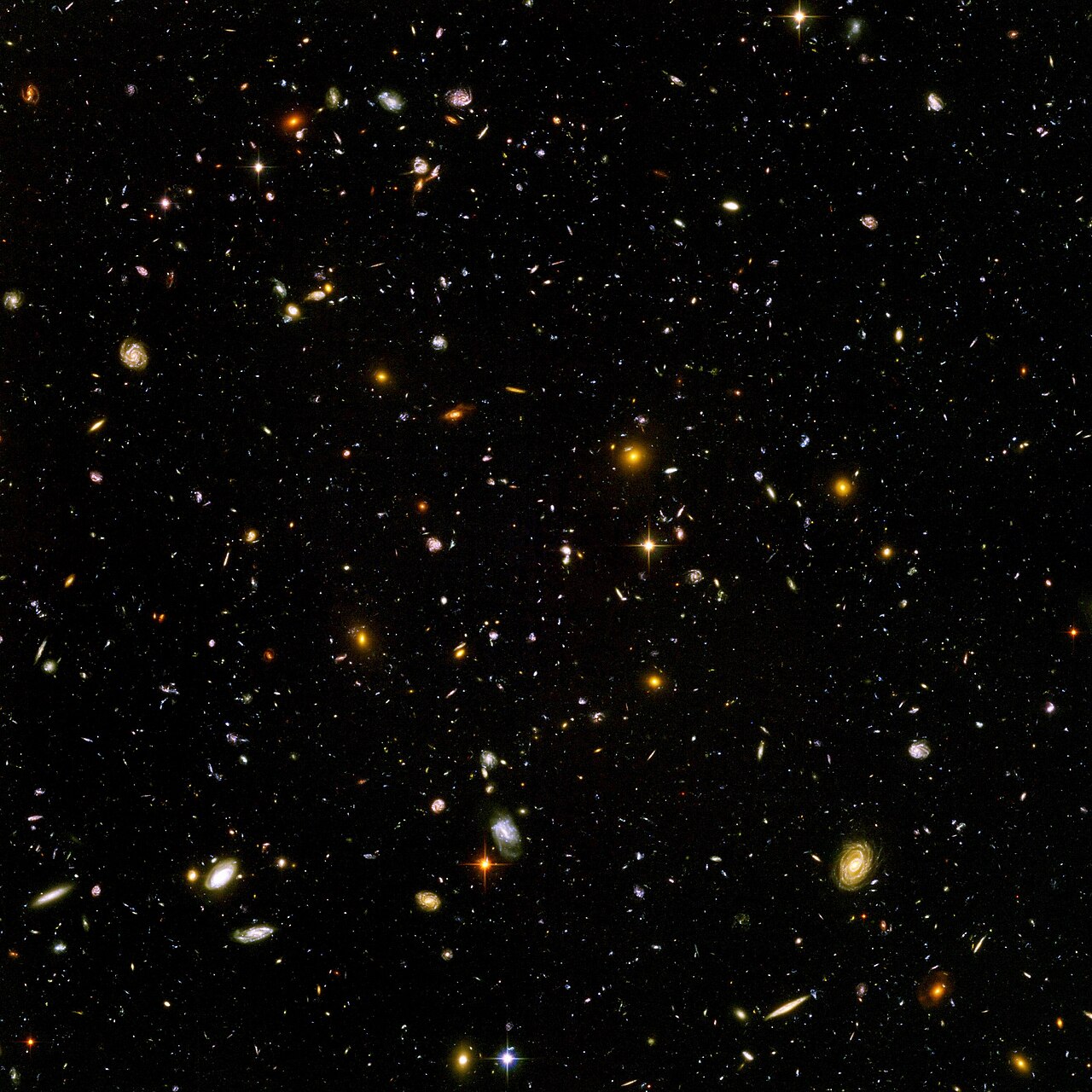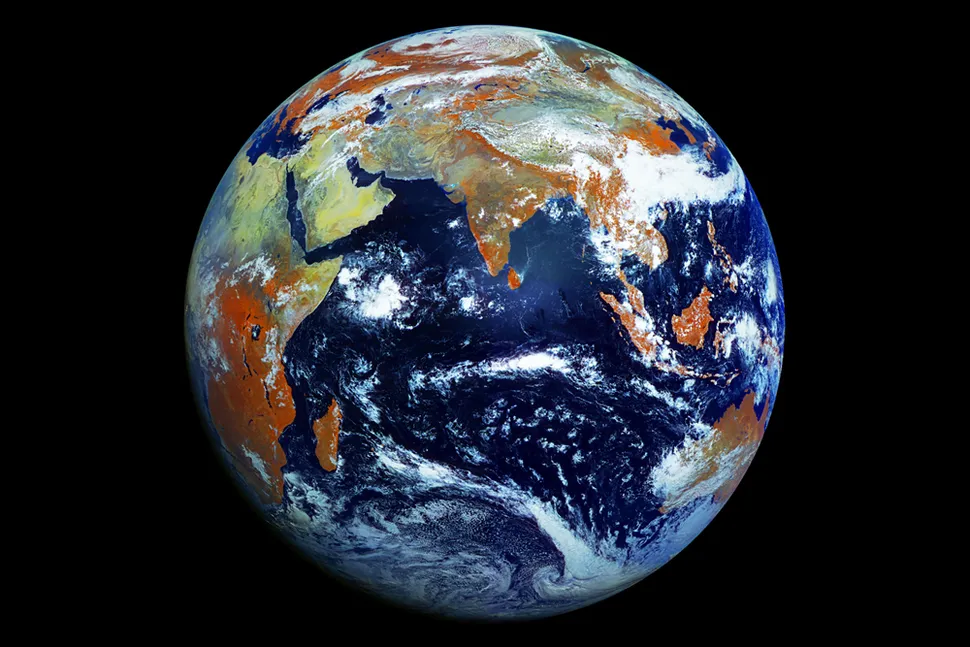For as long as human beings have existed, we have lifted our eyes to the stars and asked the same haunting question: Why are we here? The meaning of the universe has always been the most profound mystery of existence. Ancient civilizations turned to myth, religion, and philosophy to answer it, weaving stories about gods and cosmic battles, creation and destiny. But in the modern age, there is another contender for this ultimate question—science.
Yet science does not usually claim to answer questions of meaning. It concerns itself with how things happen, not necessarily why they happen. It gives us the laws of motion, the mechanisms of life, the chemistry of stars, and the physics of space-time. And still, quietly, almost secretly, science has been edging closer to the great philosophical frontier. It whispers to us through its discoveries: perhaps the very structure of reality itself holds hints of meaning.
There is no single branch of science that claims to be the “science of meaning.” But across physics, cosmology, biology, and consciousness studies, clues are emerging—like puzzle pieces scattered across time. When placed together, they may form the first glimpse of an answer that humanity has been seeking since the dawn of thought. This secret science, though still unfolding, could one day reveal not only how the universe works, but why it exists at all.
The Mystery of Origins
Every story of meaning begins with the question of origins. If we are to ask what the universe means, we must first ask: where did it come from?
Modern cosmology tells us that about 13.8 billion years ago, the universe began in an event we call the Big Bang. From an incomprehensibly hot, dense point, space and time themselves expanded outward. Within seconds, the laws of physics as we know them crystallized into existence, forming the stage upon which galaxies, stars, planets, and life would one day appear.
But here lies the first great mystery: why did the universe begin at all? What caused the Big Bang? The equations of physics describe what happened after it began, but they remain silent about what set it into motion. Some theories suggest quantum fluctuations in a vacuum, others propose multiverses where countless universes are born and die, each with different physical laws.
If our universe is just one of many, does that cheapen its meaning, or does it enrich it—suggesting that our existence is part of a grander tapestry of infinite creation? If the Big Bang required precise conditions to allow life, as evidence suggests, then why does our universe appear to be so finely tuned for consciousness?
These questions straddle the boundary between physics and philosophy. Science does not yet know the answers, but by pushing deeper into the mystery of origins, it may be uncovering hints of purpose woven into the very fabric of reality.
The Language of the Cosmos
At the heart of this secret science lies something both astonishing and perplexing: the universe appears to be written in the language of mathematics. From the spirals of galaxies to the structure of DNA, from the path of falling apples to the orbit of planets, mathematical patterns govern it all.
Isaac Newton’s equations describe gravity with elegance. Einstein’s relativity rewrote our understanding of time and space with a few simple symbols. Quantum mechanics, though strange and counterintuitive, predicts the behavior of particles with uncanny accuracy.
This raises a profound question: why does mathematics, a product of the human mind, describe reality so perfectly? Is mathematics simply a tool we invented to interpret the world, or is it the underlying code of the universe itself? If the latter, then perhaps the universe is not random chaos, but a meaningful order waiting to be deciphered.
Some scientists believe that reality itself is mathematics—that every particle, every law, every phenomenon is an expression of a deeper mathematical truth. If so, then the universe is not merely a place where meaning is sought—it may be meaning embodied.
Life as the Universe’s Expression
For billions of years after the Big Bang, the universe was dark, filled only with clouds of hydrogen and helium. Stars ignited, galaxies spun, and eventually, through the slow alchemy of cosmic time, heavier elements were forged in stellar furnaces. From those elements, planets formed, including one small blue world orbiting an ordinary star on the edge of a spiral galaxy.
On that world, something extraordinary happened: life.
The emergence of life is one of the deepest mysteries of science. How did lifeless chemicals arrange themselves into self-replicating, evolving organisms? How did blind processes of chemistry give rise to consciousness—the ability to not only exist but to know existence?
Biology shows us that life evolves through natural selection, adapting to its environment and becoming ever more complex. But what it cannot yet answer is why the universe produced life at all. Out of all the possible physical laws and conditions, why did we end up in a universe where atoms could assemble into thinking, feeling beings capable of asking about meaning?
Some argue that life is an accident, a cosmic fluke. Others propose that life is inevitable—a natural expression of the universe, as much a part of its unfolding as galaxies or black holes. If the universe is capable of producing life, then perhaps life is not a meaningless accident, but one of the universe’s deepest purposes.
Consciousness: The Universe Becoming Aware
Perhaps the most secret and profound frontier of science is the study of consciousness. For all our technological and scientific advances, we still do not fully understand what consciousness is, or why it exists.
The brain is made of matter—billions of neurons exchanging electrical signals. But from this matter emerges the experience of being alive: the redness of a sunset, the sorrow of loss, the wonder of love. How can matter produce mind?
Some scientists argue that consciousness is simply a byproduct of complex brains. Others suggest it may be something more fundamental, woven into the very fabric of the universe—like space, time, or energy. This idea, known as panpsychism, suggests that consciousness is not an accidental spark, but a universal property of existence.
If consciousness is fundamental, then the universe is not just matter moving blindly through space, but something capable of awareness. In that sense, we—human beings—are the universe reflecting on itself. Our search for meaning may not be a separate activity from the universe; it may be the universe’s way of discovering its own meaning.
The Fine-Tuning Mystery
One of the most puzzling discoveries in modern physics is the apparent fine-tuning of the universe. The laws of nature, from the strength of gravity to the charge of electrons, are set with such precision that even a slight variation would make life impossible.
If gravity were weaker, stars would not form. If it were stronger, the universe would collapse on itself. If the nuclear forces were slightly different, atoms would not bind, and chemistry as we know it would be impossible. The probability of a life-permitting universe seems staggeringly small.
Why, then, does our universe have just the right conditions for life and consciousness? Is it mere coincidence? Is it evidence of design? Or does it point to a multiverse, where countless universes exist with different laws, and we simply inhabit one of the rare ones that allows life?
The fine-tuning problem may be one of the closest scientific encounters with the question of meaning. If the universe is so delicately balanced for life, then perhaps life—and by extension, consciousness—is not incidental, but central to the universe’s story.
The Interplay of Science and Meaning
Traditionally, science and philosophy have been seen as separate realms: science explains how things happen, while philosophy and spirituality explore why. But as science delves deeper into origins, mathematics, life, and consciousness, these boundaries blur.
Science is not trying to create meaning in a human sense. It does not claim to answer moral or spiritual questions. Yet its discoveries continuously force us to confront meaning on a cosmic scale. The laws of physics, the emergence of life, the enigma of consciousness, and the fine-tuning of the universe all raise questions that go beyond pure mechanics.
What if meaning is not something imposed upon the universe from outside, but something that emerges from within it—through the very structures and patterns science is uncovering? What if science is not robbing the universe of meaning, but slowly unveiling it?
The Future of the Secret Science
We stand at the threshold of discovery. Physics is probing deeper into the mysteries of quantum mechanics, dark matter, and dark energy, which together make up most of the universe yet remain largely unknown. Neuroscience is advancing toward a better understanding of consciousness, memory, and perception. Biology is unraveling the code of life and the possibility of life beyond Earth. Artificial intelligence is pushing the limits of what it means to be “aware.”
Each of these fields may hold a piece of the puzzle. The secret science of meaning is not a single discipline but a convergence—where cosmology meets philosophy, where biology meets metaphysics, where physics meets wonder.
Perhaps the final revelation will not be a simple answer, but a transformation of perspective: that meaning is not something we find at the end of the universe, but something we are creating with every discovery, every question, every act of consciousness.
Conclusion: The Universe Awakens Through Us
The search for meaning is not separate from science—it is science at its most human, its most courageous. To study the stars, to probe the atom, to map the brain, is not just to seek knowledge but to seek belonging in the cosmos.
The secret science that could reveal the meaning of the universe is already unfolding in the quiet revolutions of thought happening all around us. It does not promise simple answers, but it does offer something greater: the recognition that our curiosity is not trivial but cosmic, that our questions are part of the universe’s unfolding story.
When we look up at the night sky and wonder, we are not small and insignificant. We are the eyes of the universe, gazing back at itself, searching for meaning in its own reflection. And perhaps that is the meaning: not a final destination, but the journey itself—an eternal dance of matter, mind, and mystery.






